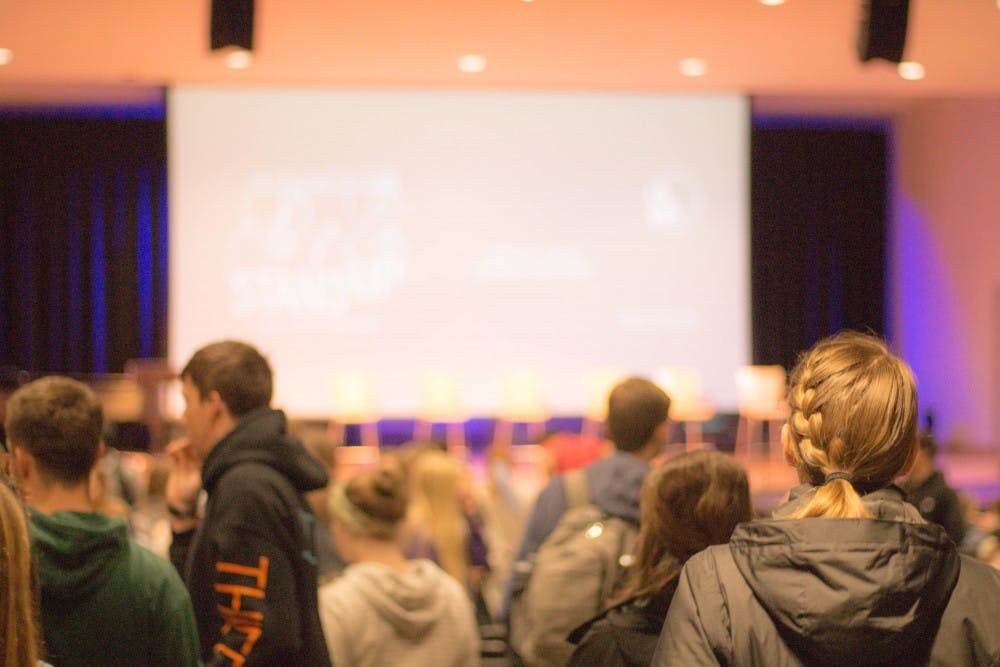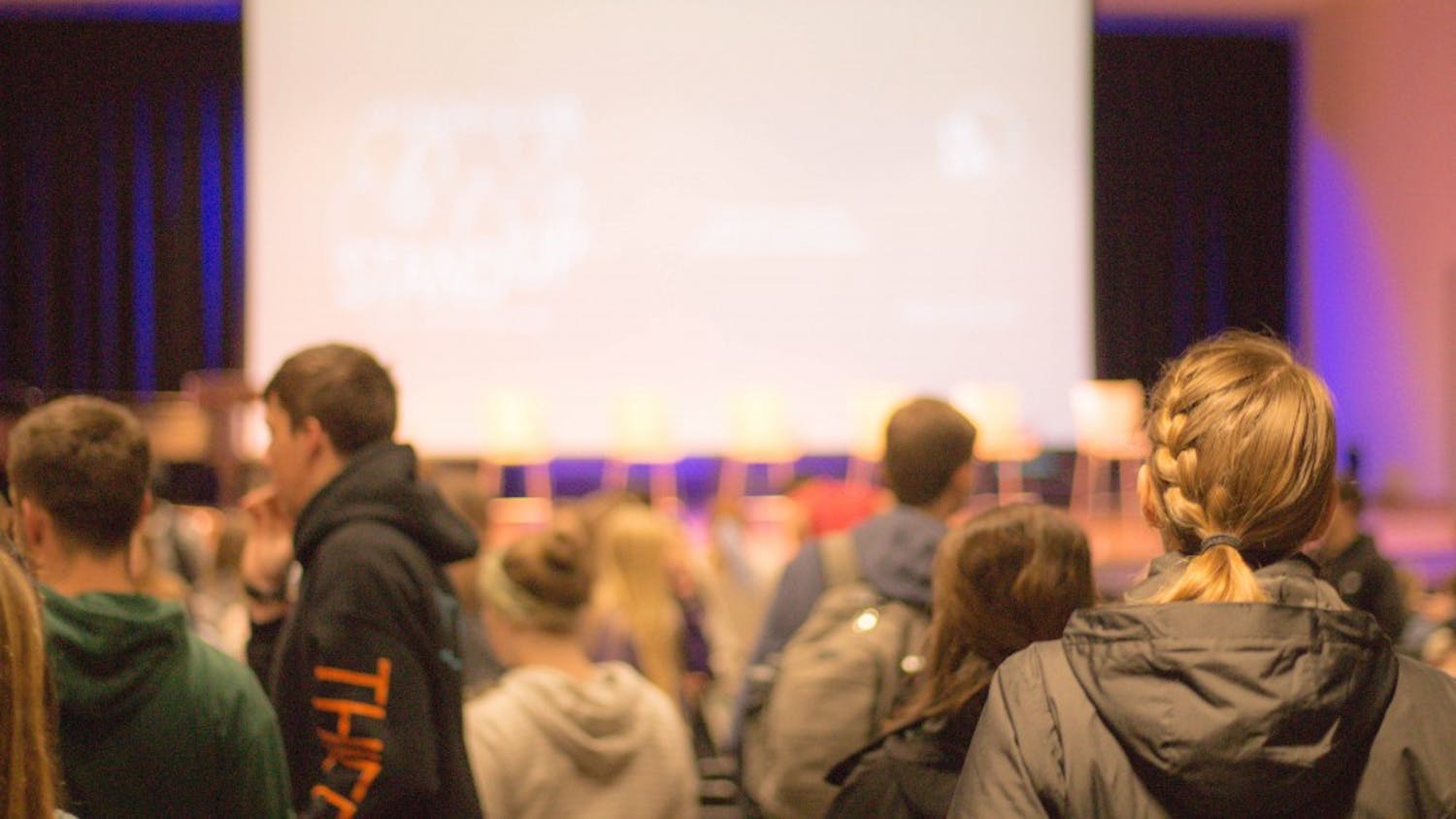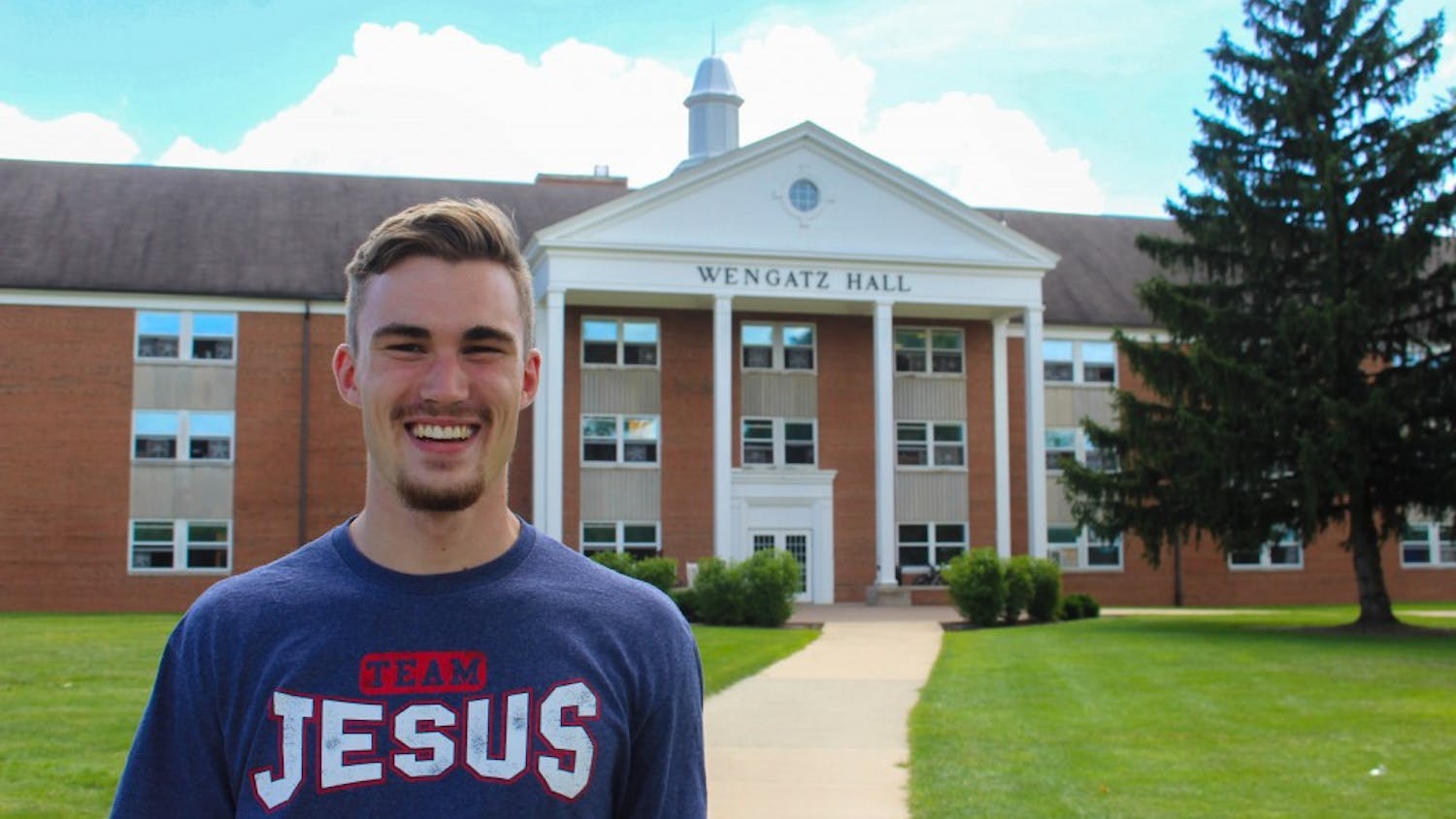Over 500 Taylor community members packed the lower level of Rediger Chapel on Oct. 16 for a night of solidarity.
Now in its eigh8th year, Stand Up for Your Sibling has long been a way for community members to come together and see the challenges others face by sharing their struggles through an anonymous survey.
“One goal of this event is for participants to see the breadth of experiences and circumstances that apply to Taylor students,” senior Rachel Chambers, one of the evening’s facilitators, said. “We have gay students on our campus, students who have experienced sexual assault, students who have anxiety and depression, students whose families may not look like yours, and so on. We each have unique experiences and circumstances that factor into who we are and where we are today.”
Participants circled their gender then answered the 49-item ‘yes or no’ survey about past and present experiences, with questions ranging from “Have you ever experienced shame or stigma surrounding mental illness?” to “Have you ever felt self conscious about your spiritual depth?”
Once the surveys were completed, members of Collaborative Programming and Residence Life shuffled up the surveys. Audience members then chose a new survey and familiarized themselves with the answers. Three men and three women read the questions from the stage, with audience members standing if the individual whose paper they held had answered ‘yes.’
While in previous years men have stood for men and women have stood for women, this year the organizers decided to let men and women stand for each other. Each question was read twice, with those representing women standing first, followed by those representing men.
“We wanted to make a decision where men and women were standing up for each other,” senior Brad Walker, another facilitator for the evening, said. “To give students a new experience with this event, but also to communicate once again that we're not alone and to help students understand what both sexes are going through.”
Twin screens located above the stage broadcast footage of the crowd, so audience members could see their brothers and sisters standing in solidarity with them.
While more people stood for some questions than others, multiple people still stood for every question, Walker said.
“It was such a privilege to stand and represent the multitude of stories that were in the room tonight and also recognizing that each one was different,” senior Josie Starkey, one of the evening’s readers, said. “Standing for those specific questions that I read, felt like I was standing for people who might not feel like anyone would stand for that, but nobody was standing alone.”
The survey covered a number of themes, with multiple questions relating to dating and sexuality, mental health, discrimination and faith.
Notable questions included “Have you ever masturbated?”, “Have you felt like you had to conceal your sexual identity?”, “Have you experienced anxiety and/or depression?” and “Have you felt like God could not love you or forgive you?”
Participants’ honesty and vulnerability in answering challenging questions results in more accurate and sometimes surprising findings.
“Each year — I've been to this three times now — I recognize and realize new things each time,” Chambers said. “I'll realize something that I previously didn't think men could ever struggle with, a lot of men stood up. Or vice versa, like women struggle with pornography and masturbation similar to men.”
After the questions were all read, the facilitators had everyone stand while statements were read, affirming that each person is one of God’s children and remindinged the audience of God’s unconditional love for them.





